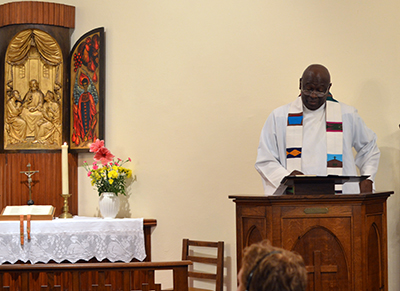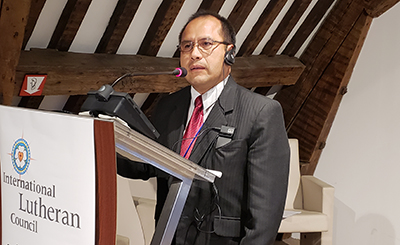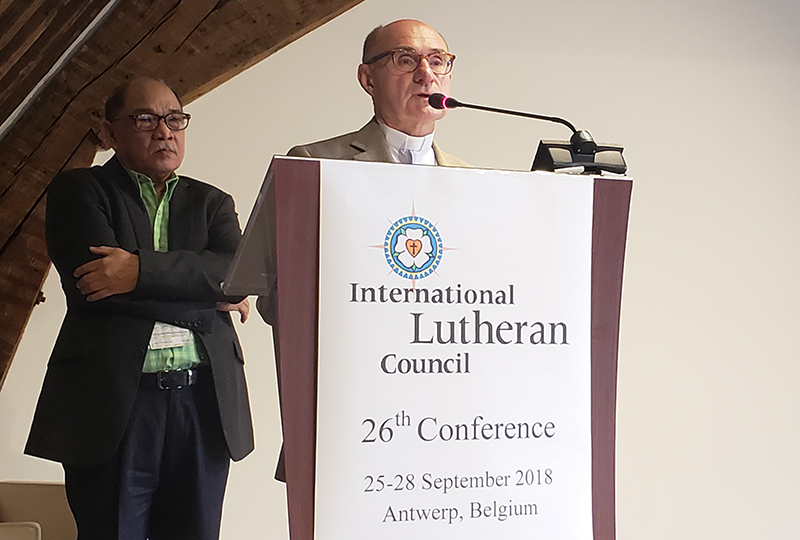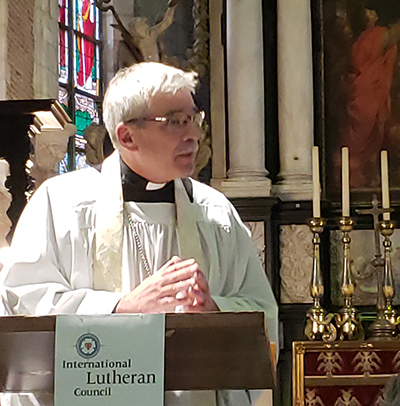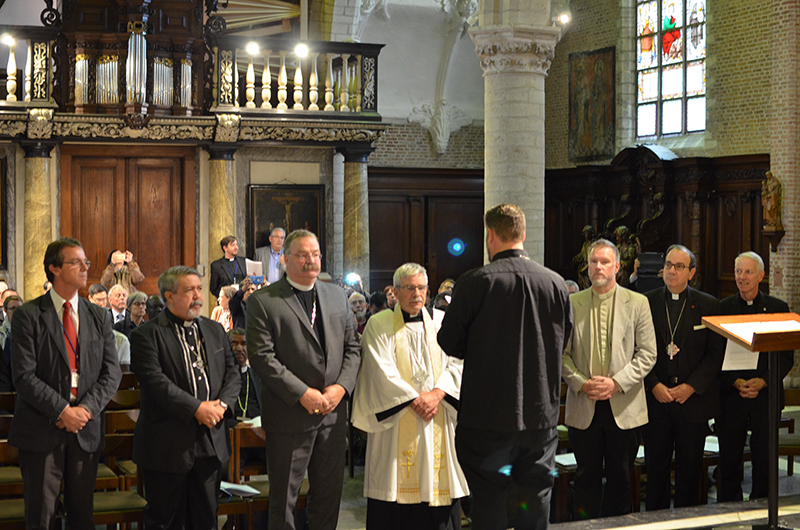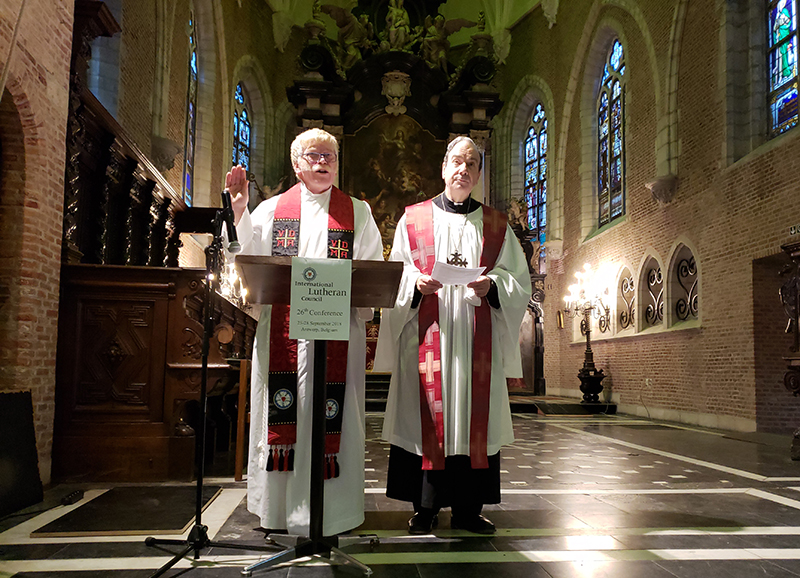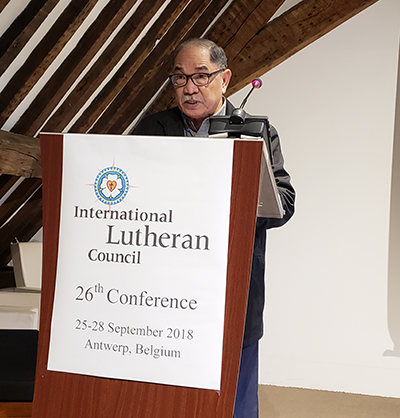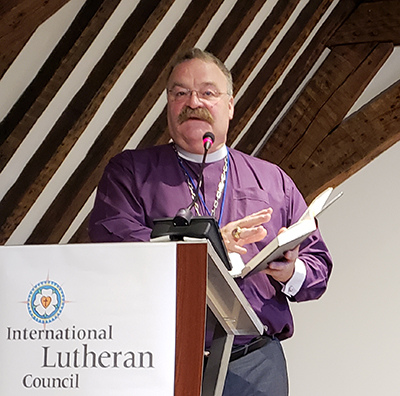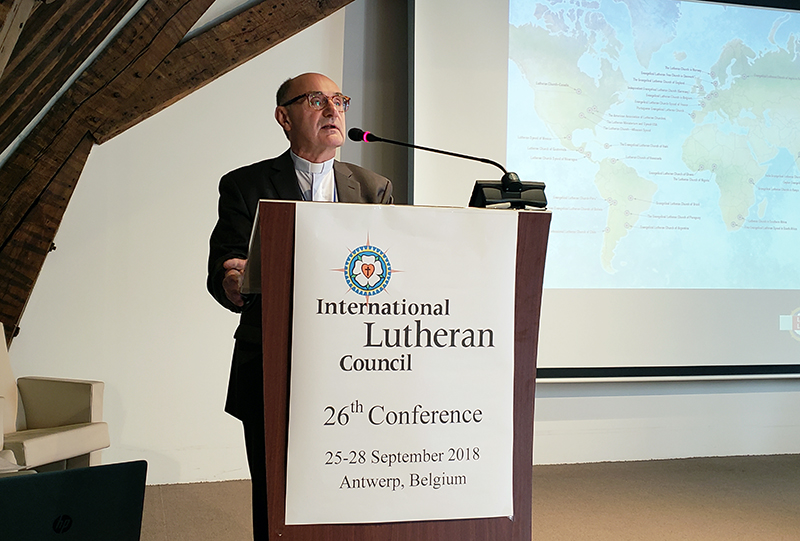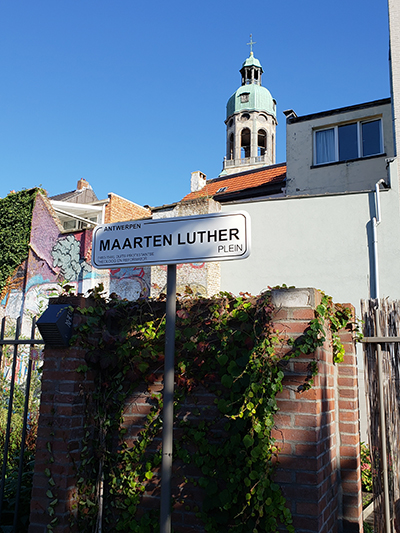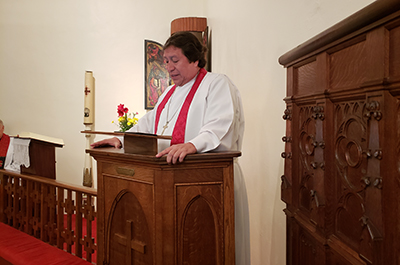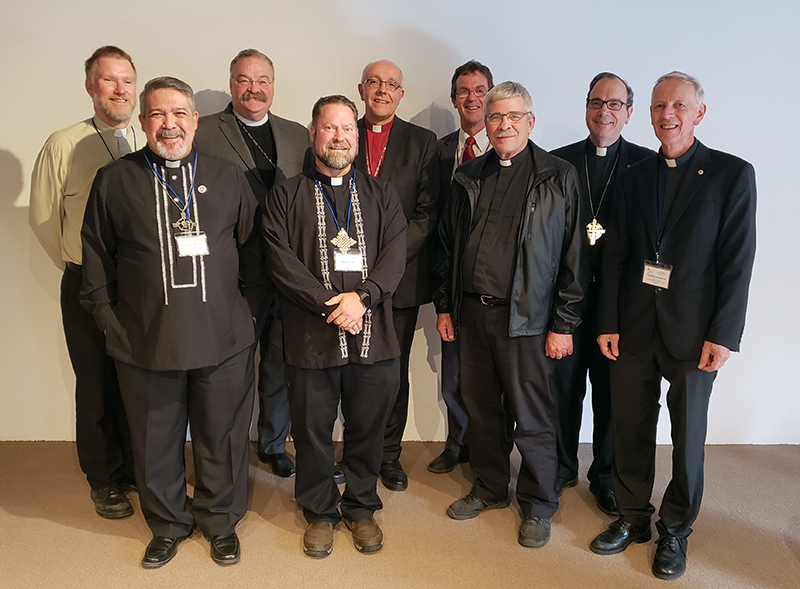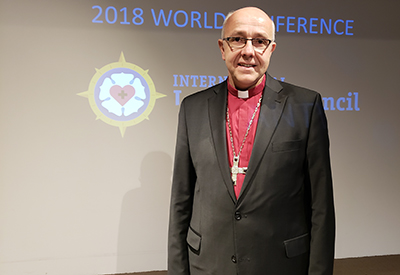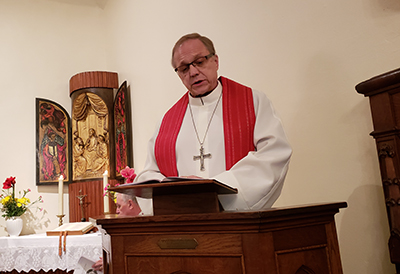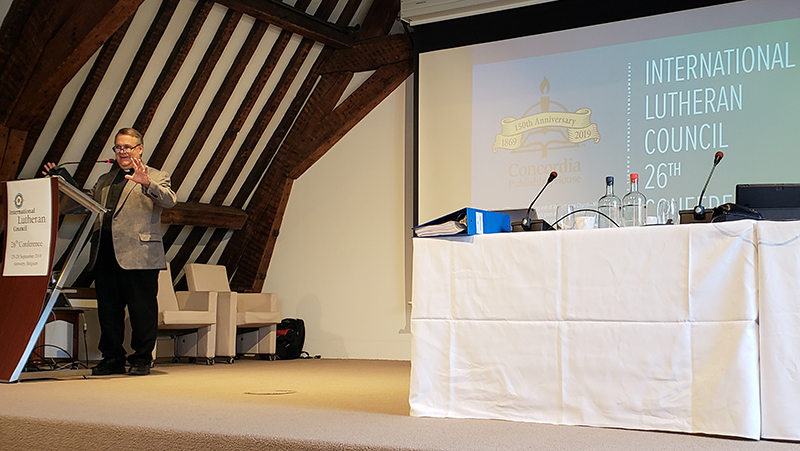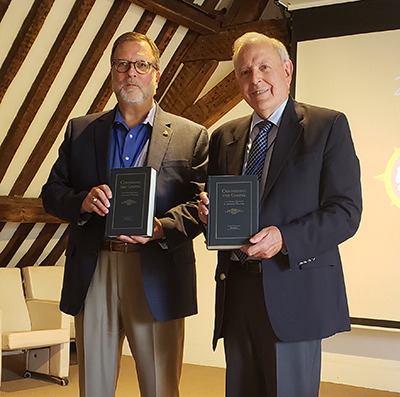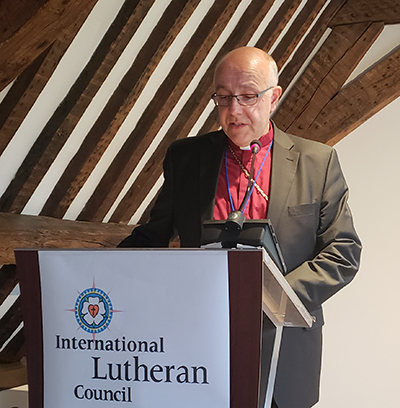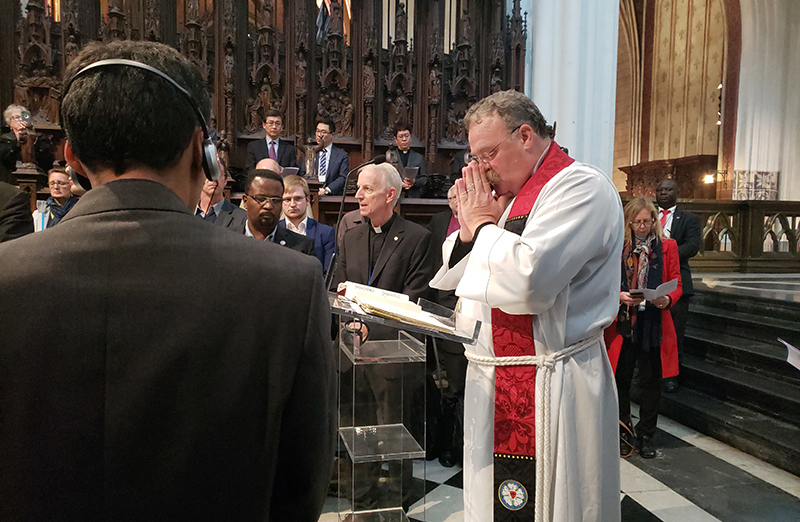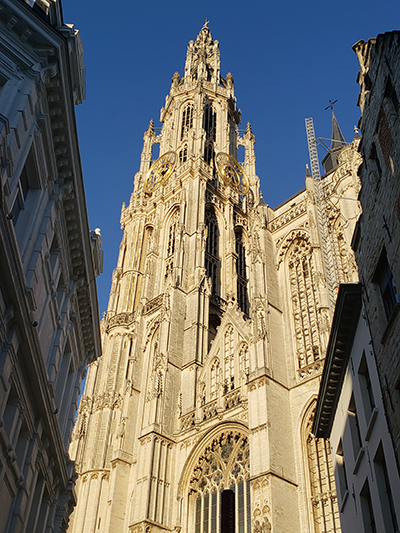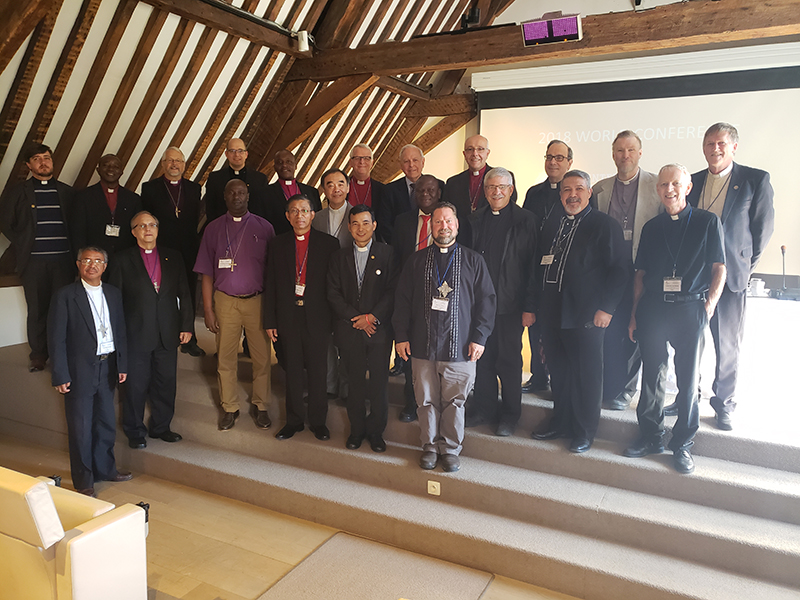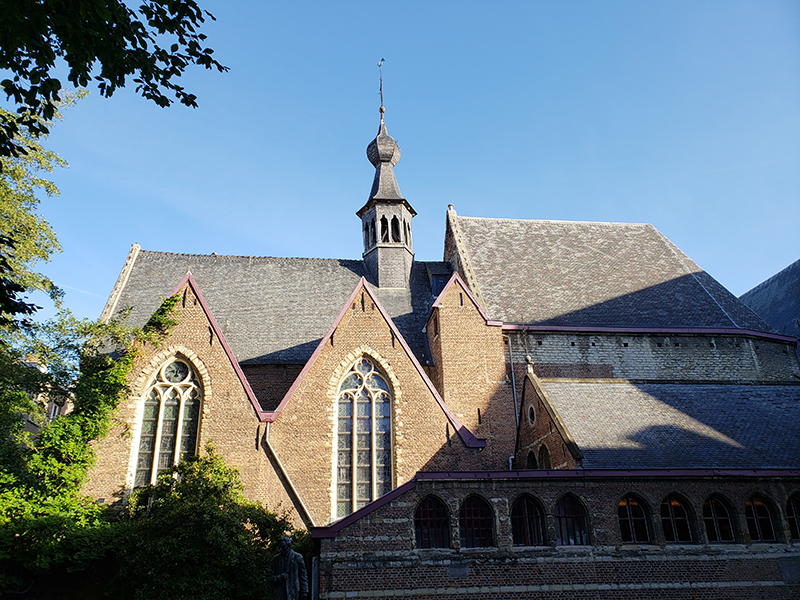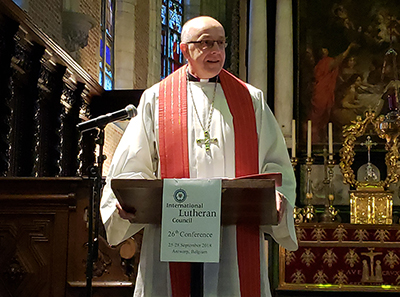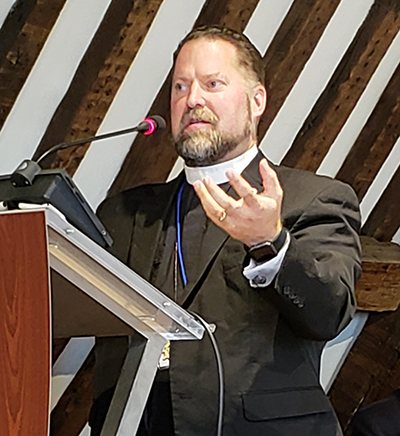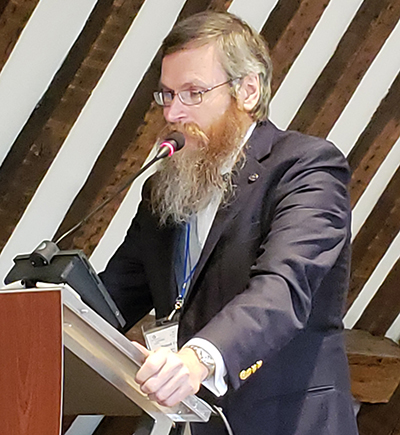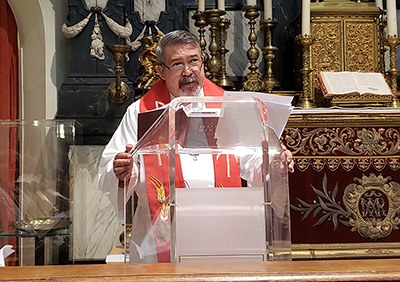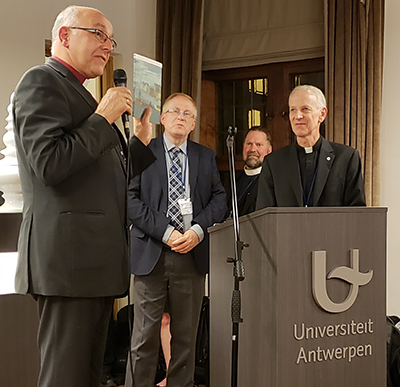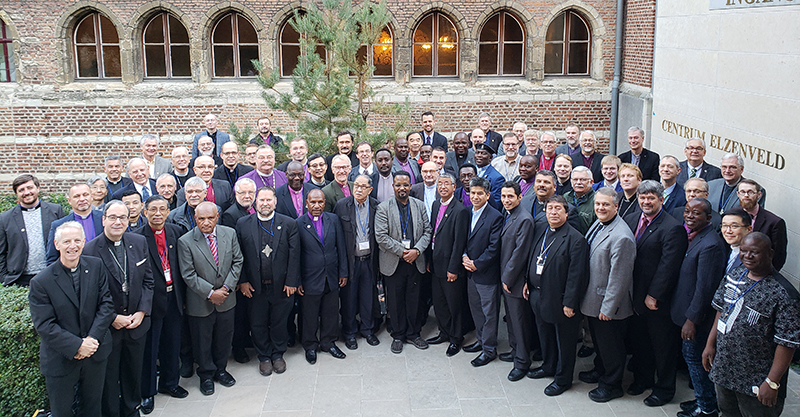
Participants in the International Lutheran Council’s 2018 World Conference in Antwerp, Belgium.
BELGIUM – The 26th (11th) World Conference of the International Lutheran Council (ILC) took place September 25-28, 2018 in Antwerp, Belgium, with church leaders representing more than 50 church bodies in attendance, representing more than 20 million Lutherans worldwide.
That attendance figure, which includes ILC members and guest churches, reflects the growing prominence of the International Lutheran Council on the world stage. That growth was also evident in the decision of the 2018 World Conference to accept 17 new church bodies into membership, more than doubling the number of Lutherans worldwide formerly associated with the ILC.
Present for the event were representatives of ILC member churches in Argentina, Australia, Belgium, Bolivia, Brazil, Canada, Chile, Denmark, England, France, Germany, Ghana, Guatemala, Japan, Kenya, Korea, Mexico, Norway, Papua New Guinea, Paraguay, Peru, the Philippines, Russia, South Africa (two member churches), the United States of America (two member churches), and Venezuela. Of those church bodies just accepted into membership at the 2018 convention, representatives were on hand from church bodies in Benin, Finland, Liberia, Madagascar, Myanmar (Burma), Norway, Rwanda, South Africa, South Sudan, Sweden, Taiwan, Uganda, and Uruguay.
Additional guests at the 2018 World Conference included representatives of the Ethiopian Evangelical Lutheran Church Mekane Yesus (Ethiopia), the Lutheran Church of Rwanda, the Evangelical Lutheran Church in Tanzania, the Independent Evangelical Lutheran Church in Belarus, the Silesian Evangelical Lutheran Church of the Augsburg Confession (Czech Republic), the Evangelical Lutheran Church of Latvia, the Evangelical Lutheran Church in Lithuania, the Evangelical Lutheran Church Society (Norway), the Istanbul Lutheran Church (Turkey), the German Evangelical Lutheran Church in the Ukraine, and the North American Lutheran Church (USA).
Ecumenism and ILC Elections
The theme for the 2018 conference was Ecumenism and Ecclesiology. Delegates heard lectures and studies on the topic, looking at it in its historical and regional contexts, as well as considering the confessional basis for ecumenism. The convention also heard a report on the ILC’s ongoing dialogue group with the Pontifical Council for Promoting Christian Unity, as well as adopted a resolution concerning relations with the Lutheran World Federation.
Discussion of the convention theme culminated in the adoption of a statement on “Confessional Identity and Ecumenical Responsibility.” “We are also driven to engage churches outside of the ILC community,” the statement notes, “because we are convinced we have an obligation to share the Gospel of Christ and all its articles—our confessional heritage—with the whole of Christianity.” Read the full statement here.
The 2018 World Conference also saw elections to the ILC’s Executive Committee. Reelected as ILC Chairman was Bishop Hans-Jörg Voigt of Germany’s Independent Evangelical Lutheran Church. Reelected as Secretary was President Gijsbertus van Hattem of the Evangelical Lutheran Church in Belgium.
The remaining five elected positions on the ILC’s Executive Committee are filled by church bodies as opposed to specific individuals. Serving as the representative for Africa is the Free Evangelical Lutheran Synod in South Africa, which is led by Bishop Dieter Reinstorf. The region of Asia will be represented by The Lutheran Church in the Philippines, which is led by President Antonio Reyes. Europe will be represented by the Evangelical Lutheran Church of England, which is led by Chairman Jon Ehlers. The world region of Latin America will be represented by the Evangelical Lutheran Church of Brazil, led by President Rudi Zimmer. Finally, the North American region will be represented by Lutheran Church–Canada, which is led by President Timothy Teuscher.
Additional appointments to the Executive Committee include Rev. Dr. Robert Bugbee (Past President of Lutheran Church–Canada and former Vice-Chairman of the ILC) and President Matthew Harrison of The Lutheran Church—Missouri Synod.
For detailed news on the 2018 World Conference, see the reports at the International Lutheran Council’s website here.
———————

